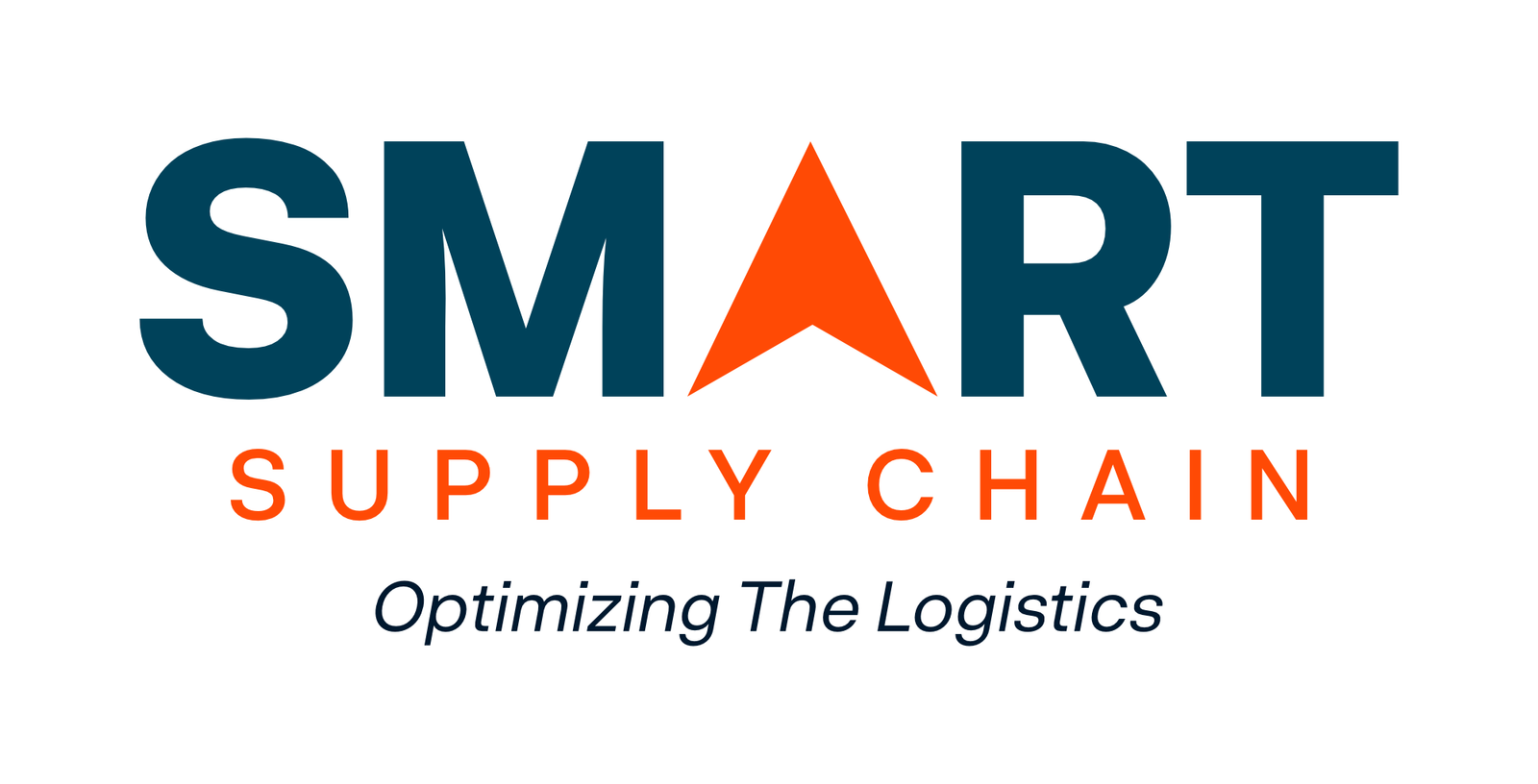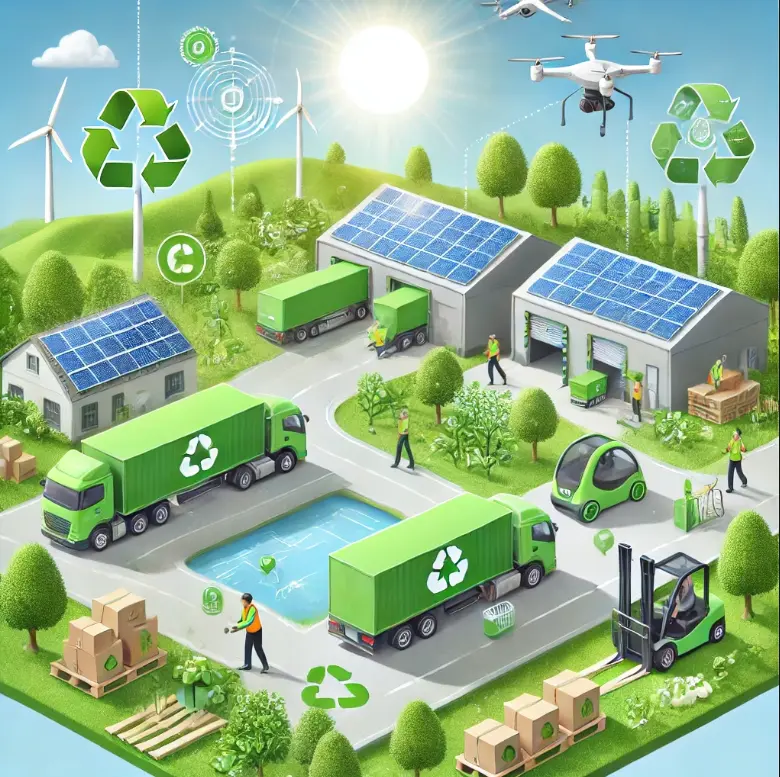Introduction
Learn about sustainability in logistics and strategies for reducing carbon footprint in B2B operations. Explore innovative practices and green logistics solutions aimed at minimizing environmental impact while enhancing operational efficiency. Gain insights and actionable tips to integrate sustainable practices into your logistics strategy effectively.
Significance of Sustainability in Logistics:
The Environmental Impact
Logistics operations play a significant role in the emission of greenhouse gases, especially CO₂, which contributes to the acceleration of global warming and environmental degradation. By adopting sustainable logistics practices, we can effectively reduce the negative impacts on the environment, such as emissions and the depletion of natural resources. In order to make progress in this area, it is essential to incorporate renewable energy, energy-efficient technologies, and waste-reduction practices.
Economic Viability
Implementing sustainable logistics practices can result in significant cost savings. Companies can lower operational costs by improving efficiency, reducing waste, and optimizing resource use. In addition, implementing sustainable practices can help reduce the impact of volatile fuel prices and avoid potential penalties from regulations. Investing in sustainability can give companies a competitive edge by attracting environmentally conscious customers and investors.
Regulatory Compliance
Stricter environmental regulations are being enforced by governments worldwide to combat the pressing issue of climate change. By implementing sustainable logistics practices, companies can not only avoid fines and ensure compliance with regulations, but also enhance their reputation in the industry. Compliance with regulations can also lead to various incentives and support from government programmes that focus on promoting sustainability.
Embracing Social Responsibility
Sustainable logistics takes into account the environmental concerns of various stakeholders, such as customers, investors, and communities. By showcasing a dedication to sustainability, companies can boost their corporate social responsibility, which in turn enhances their brand image and builds trust among stakeholders. Businesses that make a conscious effort to minimize their environmental footprint can foster stronger connections with their stakeholders and make a positive impact on society.
Tips for Minimizing Carbon Emissions in the Logistics Industry
Environmentally-Friendly Supplies and Transportation
Optimizing Transportation Routes: Utilizing cutting-edge route planning tools can greatly minimize travel distances and fuel usage. Through careful analysis of traffic patterns, road conditions, and weather forecasts, companies can strategically optimize their routes to maximize efficiency. Utilizing real-time tracking systems enables the ability to make dynamic route adjustments, resulting in reduced fuel consumption and emissions.
Utilizing Energy Efficient Vehicles: By incorporating energy-efficient vehicles into your fleet, you can make a significant impact on reducing emissions. Electric, hybrid, or alternative fuel vehicles are excellent investments in this regard. These vehicles are known for their superior efficiency compared to traditional internal combustion engines, resulting in reduced emissions. Consistent maintenance and regular upgrades are crucial for achieving optimal performance, enhancing fuel efficiency, and minimizing environmental impact.
Embrace the Cycle of Reuse, Repair, and Recycle
Recycling Materials: Implementing comprehensive recycling programmes can greatly reduce waste by recycling materials. It is important for companies to prioritize the recycling of packaging materials, office supplies, and other consumables. Utilizing recycled materials for packaging and operations is a sustainable practice that contributes to resource conservation and waste reduction.
Utilizing Local Products: By sourcing materials from nearby suppliers, the transportation distances are minimized, resulting in a significant reduction in fuel consumption and emissions. Supporting regional economies through local sourcing can lead to increased transparency and traceability in the supply chain. It is important to give preference to suppliers who prioritize sustainable practices within the local community.
Maximizing Longevity: Prolong the lifespan of equipment and products through consistent maintenance and repairs. By implementing these practices, waste can be minimized and the need for additional resources can be significantly reduced. Promote the adoption of sustainable practices by encouraging the reuse of packaging materials and containers. Implement efficient systems that make it easy for customers to return and reuse these items.
Efficiently Managing Waste and Consumption
Reducing Energy Consumption: Implementing energy-efficient practices in warehouses and offices can significantly reduce energy consumption. We prioritize the use of LED lighting, energy-efficient HVAC systems, and the optimization of machinery operations. Discover the various possibilities of renewable energy, including solar and wind power, to significantly decrease our dependence on fossil fuels.
Embracing Intelligent Logistics Solutions: Utilizing Warehouse Management Systems (WMS) and other intelligent logistics solutions can greatly enhance inventory management, minimize waste, and significantly boost overall operational efficiency. IoT devices offer the advantage of real-time energy consumption monitoring, allowing companies to quickly identify and resolve any inefficiencies.
Optimizing the Use of Space
Maximizing Packaging Efficiency: Designing packaging to optimize space utilization and minimize material use. Modular packaging systems offer the flexibility to accommodate various products, minimizing the requirement for unnecessary packaging. Using lightweight materials that provide sufficient protection can help to further decrease the weight of shipments and the resulting emissions.
Efficient Load Optimization: Utilizing advanced load planning software maximizes vehicle utilization, resulting in fewer trips required and significant fuel savings. Consolidation centers have the ability to bring together shipments from various sources, resulting in enhanced efficiency and a decrease in emissions.
Understanding and Assessing Emissions
Tracking the Emission Data: Accurate tracking and analysis of emissions data are essential for identifying areas of improvement in logistics operations. By utilizing data analytics tools, emissions can be effectively monitored throughout all logistics operations. This enables the identification of high-emission activities and facilitates the establishment of achievable reduction targets.
Identifying Areas for Improvement: Examine emissions data to pinpoint noteworthy sources of emissions and prioritize measures to decrease them. Establishing clear and quantifiable goals for reducing emissions and consistently monitoring progress is crucial.
Implementing Strategies to Reduce Logistics Costs: Create and execute precise strategies to decrease emissions through thorough data analysis. One possible approach is to optimize routes, upgrade vehicles, improve packaging efficiency, and enhance energy management practices.
Exploring the Latest Technological Innovations in Sustainable Logistics
Exploring the Power of Data Dashboards and AI
Developing Data Structures: Utilizing AI technology, we can create reliable data structures that seamlessly integrate information from multiple sources, guaranteeing the utmost accuracy and consistency of data. This integration enables a thorough analysis and well-informed decision-making, supporting the optimization of logistics operations.
Improving Routes and Operations: Utilizing cutting-edge AI technology, our advanced tools streamline routes and operations, resulting in significant reductions in fuel consumption and emissions. Utilizing advanced AI technology, predictive maintenance plays a crucial role in preventing unexpected vehicle breakdowns, thus guaranteeing smooth and dependable logistics operations.
Enhancing Decision-Making: Real-time data dashboards offer valuable insights into logistics operations, empowering informed decision-making. Utilizing predictive modelling and analytics allows companies to proactively anticipate future trends and make strategic adjustments, leading to ongoing enhancements in sustainability.
Utilizing predictive analytics
Optimizing Container Utilization: Utilizing predictive analytics to manage empty containers leads to improved efficiency by reducing empty miles. Utilizing real-time data, our cutting-edge routing system makes dynamic adjustments to optimize resource utilization and reduce emissions.
Maximizing Fleet Efficiency: By utilizing predictive analytics, vehicle performance can be closely monitored to identify any inefficiencies and schedule proactive maintenance, ensuring optimal fleet performance. By implementing this approach, fleet reliability is improved, downtime is reduced, and emissions are lowered as vehicles are optimized to operate at their highest efficiency.
Optimizing Fleet Management Systems
Utilizing IoT and Telematics: IoT devices and telematics systems offer the ability to monitor vehicle conditions and driver behaviour in real-time. This data helps to optimize fleet operations, reduce fuel consumption, and minimize emissions.
Improving Fleet Efficiency: Analyzing telematics data reveals opportunities for enhancing fleet operations. Driver training programmes encourage the adoption of environmentally-friendly driving practices, leading to even greater reductions in fuel consumption and emissions.
Conclusion
Emphasizing the importance of sustainability in logistics is crucial for addressing climate change, improving economic efficiency, and meeting regulatory obligations. Through the implementation of environmentally-friendly practices, utilization of cutting-edge technology, and promotion of global collaboration, the logistics industry has the potential to make a substantial impact in reducing its carbon emissions. This holistic approach not only tackles environmental issues but also encourages social accountability and economic sustainability. Incorporating sustainable logistics practices not only helps companies save costs and comply with regulations, but also enhances stakeholder trust. It is a crucial strategy for businesses dedicated to a sustainable future.
At Smart Supply Chain, our focus is on driving sustainability in the logistics industry through the integration of eco-friendly practices and cutting-edge technologies. With a strong focus on sustainability, Smart Supply Chain is dedicated to minimizing carbon emissions by utilizing electric and CNG transport vehicles, optimizing route planning, and championing recycling and reuse initiatives. Through consistent investment in eco-friendly infrastructure and strategic collaborations that prioritize environmental stewardship, Smart Supply Chain strives to establish itself as a leader in sustainable logistics practices within the industry.




One Response